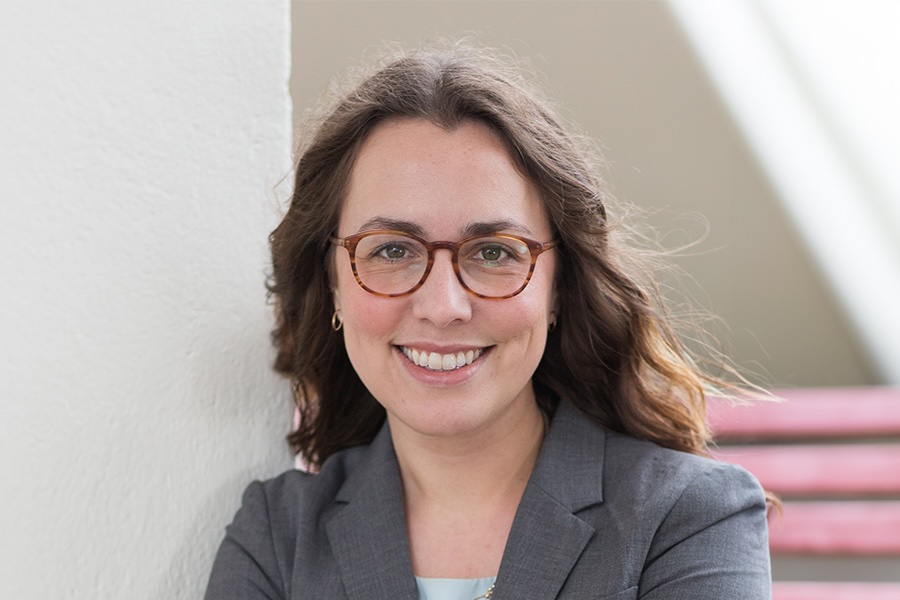Alumni Spotlight: Emily Griffith

Emily Griffith graduated from Florida State University in 2003 with a bachelor’s in statistics from the Department of Statistics, part of the College of Arts and Sciences. Five years after graduating, Griffith earned a doctorate in statistics from North Carolina State University where she currently serves as associate department head and professor of the practice in the Department of Statistics. Alongside teaching and administrative tasks, Griffith helps students and faculty from various fields analyze their research data. In 2023, Griffith was named a fellow of the American Statistical Association, which bases selections on nominees’ reputations and outstanding contributions to statistical science. This year, Griffith was the principal investigator of the project, “Models in Data Science Consulting in Higher Education: Disseminating Current Practices and Knowledge,” funded by the Alfred P. Sloan Foundation.
Tell us a little about your background, where you’re from and what brought you to FSU.
I grew up in Tallahassee and went to Ruediger Elementary School, Griffin Middle School and Leon High School. After speaking to an FSU college recruiter who visited Leon High School, I decided to attend FSU, and it was the best decision. My older brother also went to FSU a few years ahead of me. Seeing him enjoy a different side of Tallahassee in college made FSU even more appealing!
What inspired you to pursue a degree in statistics?
In my first semester of college, I took an introductory statistics class and expected it to be my last math class ever, but I ended up really enjoying the class. The course used lots of example data sets, and we were given explanations of what the data was and its goals. I got to see how statistics interfaces with science and other fields, which I thought was very neat. The class’s teaching assistant suggested I take another statistics class, so I did. The more classes I took, the more passionate I became.
Tell me about your current role as a professor of the practice at NCSU.
I do a lot of statistical communication, consulting, and collaboration — meaning I help students and faculty answer questions about their data for academic research. I work closely with crop scientists evaluating yield, veterinarians looking at improved treatment of companion animals, paleontologists studying paleoclimate, and NC State’s libraries and Data Science and AI Academy through a consulting program. It’s exciting to work with people from across campus doing all sorts of interesting statistical work.
I also teach two courses: statistical programming, which is an introductory course for statisticians programming in Python, and a graduate-level course where students work on a real project with a research group or lab on campus.
Tell me about your current role as an associate department head at NCSU.
I’m responsible for updating the department’s curriculum, matching classes to instructors, and chairing our awards committee to ensure we are nominating faculty for awards, alongside other tasks. This is a new position for me, so it’s been interesting to see how things work!
I also got the Statistical Tutoring and Training Hub, our new tutoring center, up and running. The STAT Hub supports students in introduction-level courses through tutoring from student tutors.
What do you enjoy most about your job?
I get to work on different things everyday with a variety of people, and I really enjoy that constant change. I love helping people learn something new and answering questions about their interests.
Tell me about earning an American Statistical Association fellowship.
To say I was excited about this fellowship would be an understatement. I’ve been involved in ASA for a long time on different committees but was just recently given the designation of a fellow, which is reserved for a very small percentage of members. It’s a nice recognition that my work impacts the field of statistics. It’s satisfying yet surreal that people whose work I admire respect my work, too.
When I started my current job, we wrote down our 10–15-year goals at a faculty training — mine was to be an ASA fellow. Seeing the importance of having a plan and working hard pay off was exciting.
Describe your experience leading the “Models in Data Science Consulting in Higher Education: Disseminating Current Practices and Knowledge” project.
I was the principal investigator for this project which was funded by a $174,994 grant from the Alfred P. Sloan Foundation. This project grew from a May 2023 workshop where 25 people with various expertise came together to discuss best practices for data consulting in higher education across all states and institutions. At this workshop and throughout our project, we covered best practices for inclusion and leadership and utilizing students as consultants.
Alongside our project, our team published a special edition of the journal Stat — an electronic journal for notable statistics research — “Equitable and Sustainable Models in Statistical and Data Science Consulting and Collaboration,” which outlines recommendations uncovered in the project, such as the importance of documenting collaborations.
How did your time at FSU prepare you for professional success?
Outside of meeting amazing professors and friends, I was exposed to a huge variety of topics through different classes. The breadth of courses and activities provided by FSU creates opportunities for students to be well-rounded in their studies.
Are there any faculty or staff members who inspired you?
Department of Mathematics professor Monica Hurdal — who I’m still in touch with 21 years later — was always a big inspiration for me. I took one of her calculus courses, and she was an amazing teacher. In her class, I really learned to understand calculus, which I utilized later in graduate school.
What advice do you have for current students?
My standard advice for students is to not worry so much and to pursue something they’re interested in. I hope students try to put less pressure on themselves to find their perfect career plan and know it’s okay to change their minds about the future.
